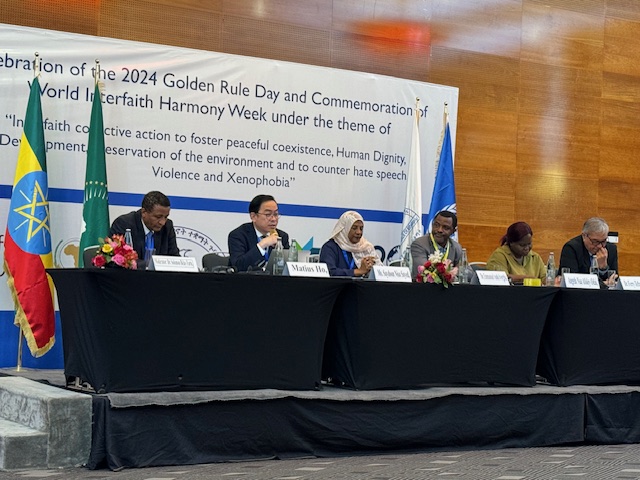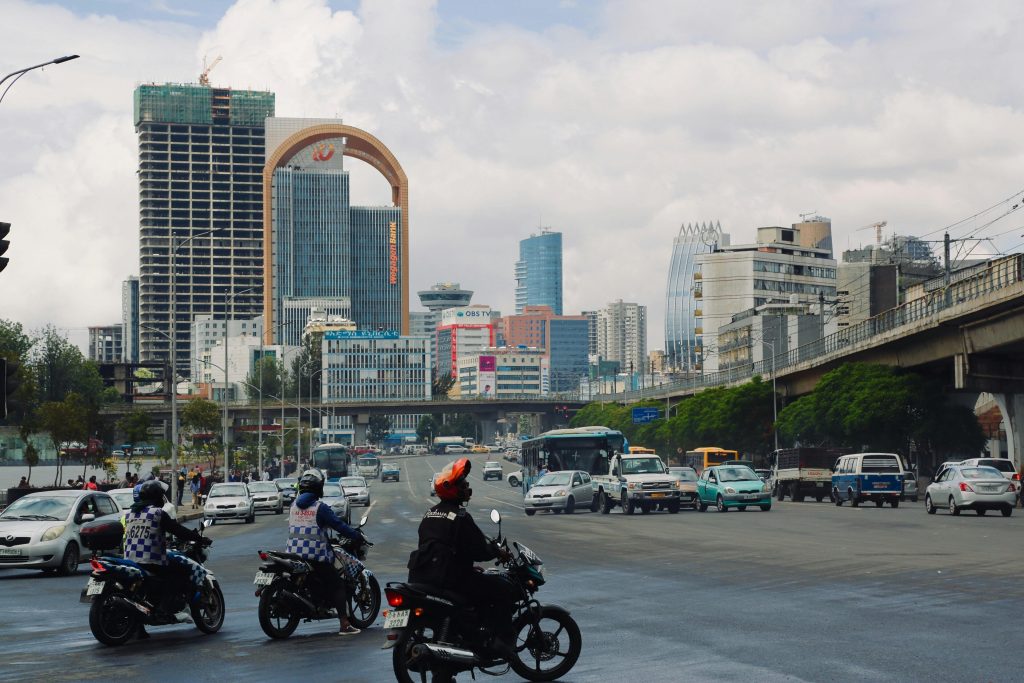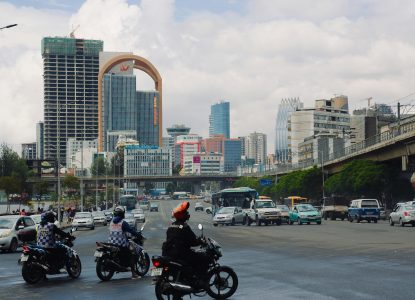By Katherine Marshall, Vice President, G20 Interfaith Association
These comments were given during the Closing Plenary of the Addis Ababa Interfaith Conference, held on April 16-17, 2024 in Ethiopia.
– – –
This complex meeting engaged a remarkable group of women and men from across Africa and beyond. It focused on the priority concerns for Africa over the long term, within the broad scope of the African Union’s 2063 agenda. It also focused on specific and urgent topics in the light of the 2024 G20 agenda articulated by the G20 Presidency of Brazil. And it focused on Africa’s immediate, pressing priorities. These agendas and perspectives are tightly intertwined, but for this brief overview I focus on 2024 and the G20, and on several longer term issues that were woven through the conference discussions. Both immediate and longer term perspectives are integral to the G20 Interfaith Forum agenda, and it was thus informative and inspiring to be part of the Addis Ababa discussions.
The conference highlighted the rich religious traditions of Africa, their deep roots, and their direct involvement in all issues that affect Africa’s present and future. Often termed the world’s “most religious” continent, Africa has extensive religious and spiritual resources to draw on, and should do so with purpose and wisdom. The wealth of interfaith experience offers a distinctive resource. A central hope emerging from conference discussions is that we (internationally and in Africa) can bring religious ideas, experience, and prophetic voices into policy circles as a normal, continuing, and deliberate approach.

The conference celebrated the African Union’s G20 membership and looked forward to the AU’s strong and continuing voice in the G20 process, in Brazil in 2024, then South Africa in 2025. With the G20’s importance in global governance, engaging actively in the process offers notable opportunities to bring transformational change. The conference priorities, both for African nations and for Africa’s interreligious voices, can and should enrich the G20 process.
Several overarching themes emerged constantly during conference discussions. The diversity of African nations and situations can and should never be obscured in the search for common themes, no matter the topic. Conventional wisdom was constantly questioned, prompted in part by observations that differed by place and perspective. Questions of values and relationships were woven through discussions, whether touching on poverty, conflicts, food security, debt sustainability, or climate change. Many expressed keen awareness of Africa’s extraordinary youth population, even as they highlighted the importance of experience and wisdom linked to elders.
If one theme could be said to dominate the deliberations, it was peace and security. Many called for greater global and local attention to resolving conflicts but also preventing them and healing the scars of violence. Translating rhetoric to action, promises to accountability, dignity to results were calls cutting across diverse topics. A critical problem is a breakdown in trust, which challenges institutions and communities at all levels. Women’s equality should, it was urged, be a more central part of gatherings like this one, as women are a vital force in African societies. However, they are too often sidelined or neglected; they suffer as victims, but still more need to be seen in their roles as critical actors. There were calls for courage of commitment, bold action, and cross sector partnerships.

In the context of the 2024 G20 process, many AU and African Interfaith priorities link clearly to Brazil’s 2024 agenda. Hunger, poverty, and insecurity demand action on unsustainable debt burdens, resource mobilization, and financial support–both for humanitarian crises and for development. Climate change affects Africa’s present as well as its future. Both mitigation and adaptation need urgent support. Good governance was affirmed as central to any lasting solutions, including action on corruption and institutional reforms. Many affirmed the importance of linking urgent responses to crises to action to address root causes. Proposals ranged from the broad call to ensure an Africa focus in G20 deliberations to specific calls for action on topics like human trafficking.
Among the many challenges addressed during the two day conference, two merit special attention: health and education. The legacy of the COVID-19 crisis highlighted deep global inequalities and the wide social and economic effects of the pandemic. Health affects all sectors and all people. Urgent action is needed both to recover and to move forward to equitable health for all. Education is widely seen as priority and job number one: education both formal and informal, basic but adapted to current and future needs, and anchored in values of citizenship, social cohesion, and human dignity.
The G20 Interfaith Forum is committed to a full review of the diverse inputs from participants at the Addis Ababa Forum. They will shape the continuing dialogue and analysis, both looking towards the G20 Summit of leaders in November 2024 and the fast approaching 2025 South Africa G20 Presidency.
– – –
Professor Katherine Marshall is a senior fellow at the Berkley Center for Religion, Peace, and World Affairs at Georgetown University. She serves as the vice president of the G20 Interfaith Association and executive director of the World Faiths Development Dialogue, and worked at the World Bank from 1971 to 2006, tackling development issues in the world’s poorest countries.


